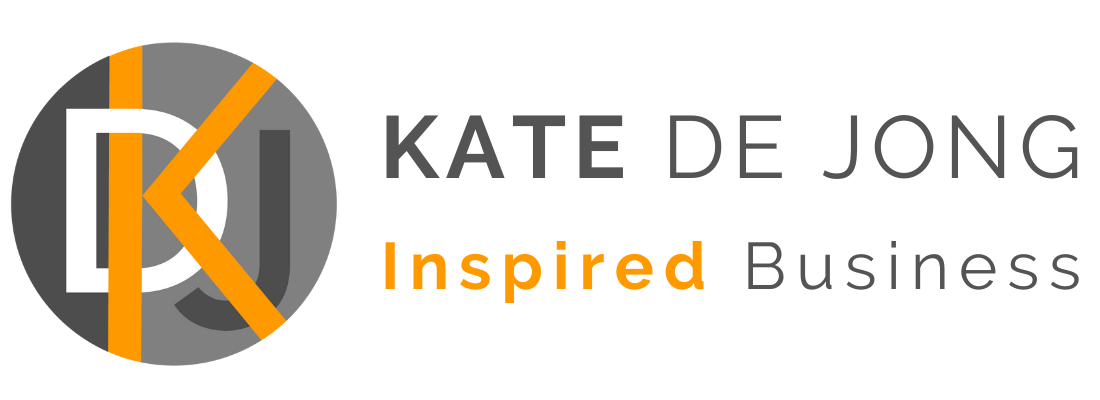
I’m sure you’ve heard the famous quote allegedly said by Confucius, the Chinese teacher, politician, and philosopher who lived more than 2500 years ago.
Choose a job you love and you’ll never have to work another day in your life.
– Confucius
It sounds so easy. And yet the seemingly simple task of “choosing a job you love” is, in reality, not so easy at all. Maybe you’ve also struggled with finding a career you love. If so, you’re not alone. A Gallup study of more than 140 countries in 2011/2012 showed that only 13 percent of employees worldwide are actively “engaged” in their jobs, or emotionally invested in their work and focused on helping their organizations improve.
That’s a staggering statistic. Because it means:
[mashtweet tweet=” 87 percent of employees worldwide are not engaged in their work or focused on helping their organizations improve.” text=”” username=”katiedejong3rd”]
How is it possible that so many of us spend a third of our lives in jobs we don’t even like? Not to mention how incredibly inefficient we must be collectively when 87% of the workforce worldwide is, at best, not motivated or exerting any effort.
The benefits of doing work you love are well documented and a quick Google search returns hundreds of articles telling you why you should love your professional life.
But it’s not that easy to find work you love. Here’s why.

1. Our Education Systems Don’t Prepare Us to Make Effective Career Choices.
Learning how to manage your career is a lifelong process that needs to start early on in secondary school – but rarely does. Imagine if, for example, during Math in high school, you learned about professions that include Math like Weather Prediction, Construction, Space Travel, Astronomy, and Global Economic Analysis, just to name a few. Would you be a little more excited to attend those dreaded classes?
We currently emerge from school with little to no idea about how the subjects we’ve studied relate to professions in the real world. And we’re not armed with essential life skills like self-awareness, emotional intelligence, or career management skills. So how can we be expected to make effective career choices?
[mashtweet tweet=”Career guidance needs to be right at the heart of education, not an afterthought. – Tristram Hooley” text=”” username=”katiedejong3rd”]
What To Do Instead
There’s an art to finding the right career path. If you, like most of us, weren’t given appropriate guidance on how to find your ideal path, it’s not too late. But it requires deep self-reflection and a willingness to ask yourself some hard questions. I define 4 P’s that are essential elements in finding your meaningful path – your Personality, your Proficiency, your Passion, and Profit. The area where these four different characteristics overlap is your Purpose, or ‘Big Why’ – i.e. your reason for getting out of bed in the morning. When you find your Big Why, you tap into an infinite well of energy, inspiration, and grit that fuels you forward. To learn more about the art of finding the right career path, click here.

2. Reality Can Be Different From Our Preconceived Ideas.
You’re asked to choose a career path when you’re young, with limited life experience, and with little idea of what many career paths are actually like on a day-to-day basis. The reality of many professions is that they’re very different from the idealistic fantasies we might have about them. And if you choose a certain path only to discover it’s not what you thought, it’s hard to change your mind after you’ve spent years attaining the appropriate qualifications and accumulated large amounts of student debt.
What To Do Instead
Before you lock yourself into any particular professional path, get out and talk to as many people as you can who are already working in the fields you’re interested in. Do your research. Get direct work experience if you can, even if you’re ‘pivoting’ in your current career. One of the best ways to determine fact from fiction and discover what you really love is to follow Dave Evans and Bill Burnett’s Life Design Principles so that you can actively create a career path that you love.
3. We Prioritise Extrinsic Values Over Our Own Intrinsic Values.
Extrinsic values are things that your external world (i.e. society, family, friends etc.) deem to be important, while your intrinsic values are the things that are important to you personally. Particularly when we’re young, we tend to place a lot more importance on extrinsic values.
But the definition of success is personal and different for everyone. It takes self-awareness and often deep soul-searching to figure out exactly what your intrinsic values are. But one thing is for sure, you won’t be able to find or build a career you love if you don’t know specifically what’s important to you and how you measure success, personally.
What To Do Instead
Take the time to understand what happiness and success mean for you personally. If you could imagine your dream workday, what would that look like? What kinds of activities would you be engaged in and how would you be interacting with other people? Discover your most cherished values and make sure that the career path you choose aligns with them and allows you to express them fully.
[mashtweet tweet=”The most successful people, the happiest people, the people who make the biggest impact – they intentionally carve their lives, their careers, by playing to their strengths. – Marcus Buckingham” text=”” username=”katiedejong3rd”]
 4. Let’s Face it, Good Career Advice Hasn’t Always Been Easy to Come By.
4. Let’s Face it, Good Career Advice Hasn’t Always Been Easy to Come By.
Back in my day, the school Careers Counsellor attempted to fit your personality and skills into a certain box of limited choices. I was told that because I was good at Math and Science (even though I hated them), I should pursue science and engineering (that ended badly). One of my friends who is now a thriving creative entrepreneur was told by her school Careers Counsellor that she should either be a prison warden or a police officer. There is so much more to choosing a meaningful career than simply looking at your grades or doing simple psychometric tests. Finding the right career path is about getting all aspects of your nature playing together in harmony.
What To Do Instead
[mashtweet tweet=”Finding the right career path is about getting all aspects of your nature playing together in harmony, like the instruments of an orchestra. – Nicholas Lore” text=”” username=”katiedejong3rd”]
Fortunately, these days there are great resources available for finding the right career path. Books that will help you ask the right questions in order to find the right answers are: Nicholas Lore’s The Pathfinder: How to Choose or Change Your Career for a Lifetime of Satisfaction and Success, Jenny Blake’s book Pivot: The Only Move that Matters is Your Next One and Chris Guillebeau’s Born For This: How to Find the Work You Were Meant to Do, and Richard Bolle’s What Colour is Your Parachute: A Practical Manual for Job-Hunters and Career-Changers.
Cleverism provides a great article about 10 Mistakes to Avoid When Choosing a Career.
 5. We’re Taught to Doubt Our Own Intuition and Self-Belief.
5. We’re Taught to Doubt Our Own Intuition and Self-Belief.
You came into this world with perfectly intact self-belief (believing you can do anything) and intuition (the ability to understand something instinctively, without the need for conscious reasoning). But you’re taught from a young age to doubt these essential qualities. It’s no wonder we feel unhappy and lost when we become disconnected from them, drifting around in a sea of other people’s opinions and ideas and a world trying to make us believe we’re not enough to make our dreams come true.
What To Do Instead
If you’ve become disconnected from your intuition, don’t worry, you can reconnect to it again if it’s your intention to do so. You can do this by spending time in quiet reflection, by going for walks in nature, or whatever it takes to get you into a peaceful, meditative state. It’s in those quiet moments that your intuition whispers to you (read more here). You’ll know when you’ve received intuitive guidance because you’ll suddenly feel an urge to do something that just feels right, even if a little scary. The next step is to believe that you have whatever it takes to do what your intuition is urging you to do.
As with all matters of the heart, you’ll know once you’ve found the career path that’s right for you.
Finding the right path creates a state of mind that transforms your life. Having a deep connection to your work makes you happy and gives you the motivation to keep going even when times get tough, leading to higher levels of success and satisfaction. It’s a positive, upward spiral that has beneficial ripple effects into all areas of your life.
Need help finding yours? Be sure to get your FREE E-Book: PATHFINDING – HOW TO FIND YOUR INSPIRED PATH & PURPOSE

Here are some more articles to help you on your journey to finding your perfect professional path:
The Art of Purposeful Living: How to Live and Work in Alignment with Your Personal Truth
Pathfinding: How to Find Your Inspired Professional Path & Purpose
The Power of Purpose and How to Thrive in the Emerging Purpose Economy
Quit the Rat Race: 5 Reasons Why You Should Break Free and Build Your Own Business
In service to helping you live your brightest life,
Kate De Jong, Ph.D
Fempire Coach for Thriving Female Entrepreneurs
[email protected]
www.katedejong.com



 4. Let’s Face it, Good Career Advice Hasn’t Always Been Easy to Come By.
4. Let’s Face it, Good Career Advice Hasn’t Always Been Easy to Come By. 5. We’re Taught to Doubt Our Own Intuition and Self-Belief.
5. We’re Taught to Doubt Our Own Intuition and Self-Belief. Kate De Jong is a business and marketing strategist for start-ups and small business owners who want to grow their business with ease. Kate is a bestselling author and a Chief Executive Women award-winner for women in leadership. Formerly a consulting engineer for more than fifteen years, Kate left her engineering career in 2012 to pursue her passion and zone of genius—entrepreneurship and marketing — and has never looked back!
Kate De Jong is a business and marketing strategist for start-ups and small business owners who want to grow their business with ease. Kate is a bestselling author and a Chief Executive Women award-winner for women in leadership. Formerly a consulting engineer for more than fifteen years, Kate left her engineering career in 2012 to pursue her passion and zone of genius—entrepreneurship and marketing — and has never looked back!